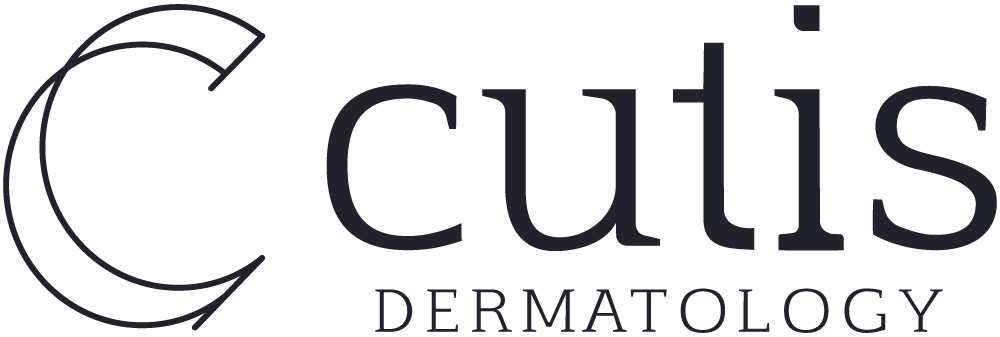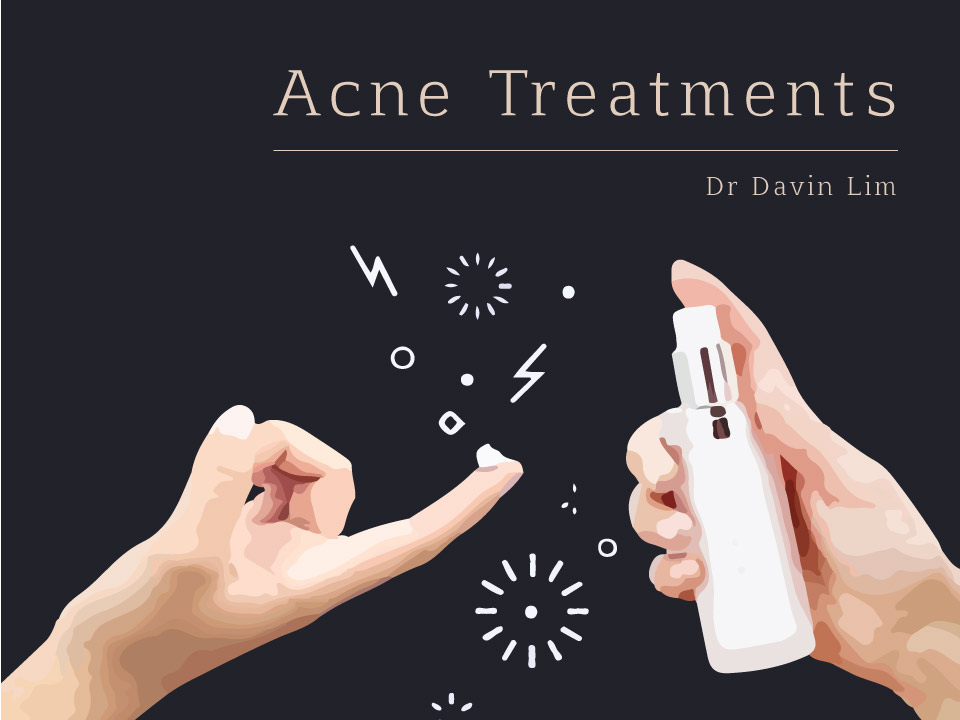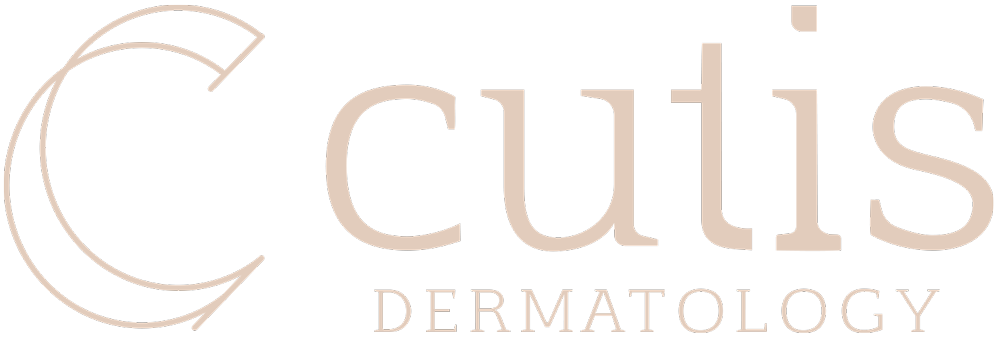In most cases, diet, good cleansing habits and simple skin care can effectively treat pimples. This guide will help you navigate through the ever-changing trends of skin care for acne prone skin.
Key Points
- Start off with an exfoliating BHA cleanser
- Apply a retinoid at night
- Retinyl palmitate & retinol are great for sensitive skin
- Retin A, adapalene, tazarotene & trifarotene are retinoids prescribed by dermatologists
- Combining clinical peels, lasers & LED will give a faster response than topicals alone
Acne Skincare at a glance
Our results speak for themselves
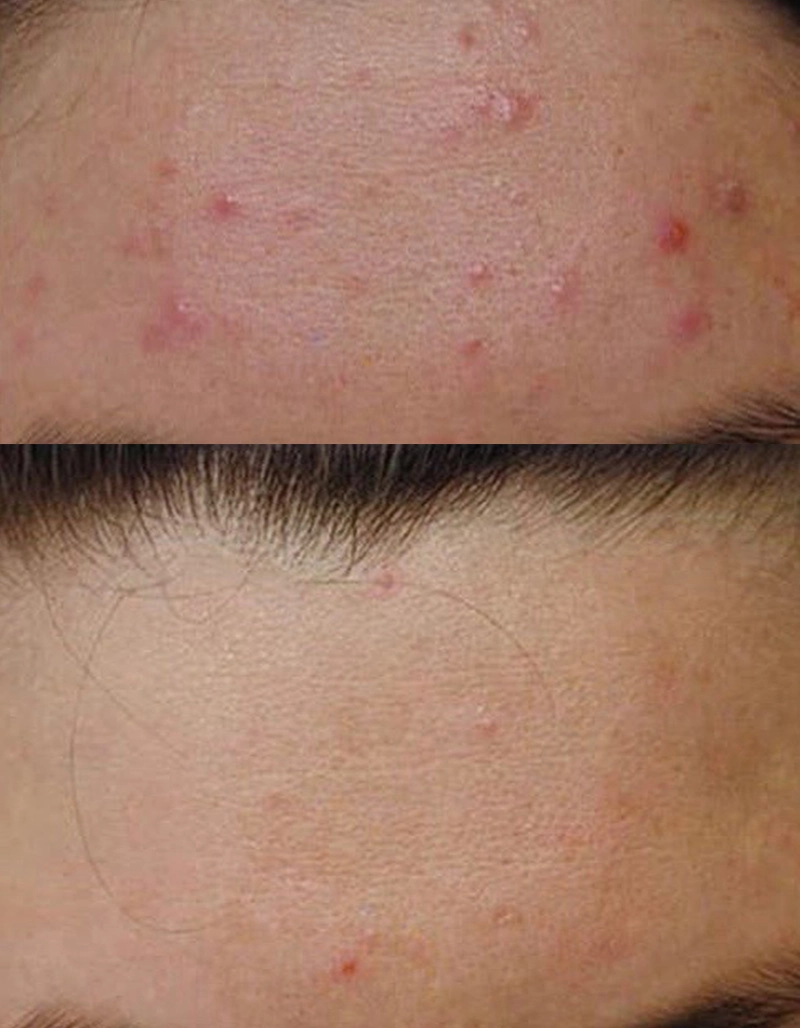
Before
After
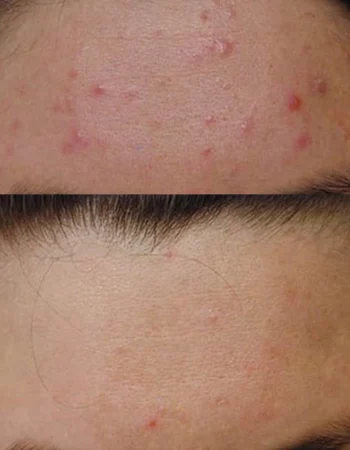
Medical therapy for acne
Ask us more about this treatmant
Preferred Consultation
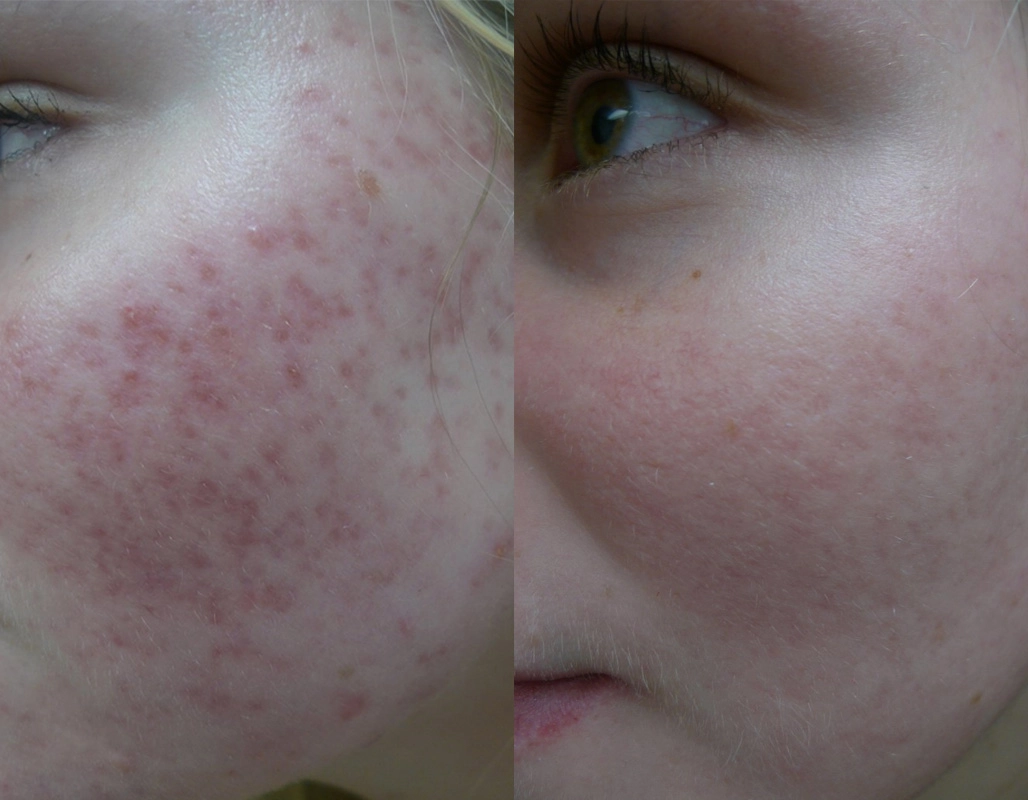
Before
After
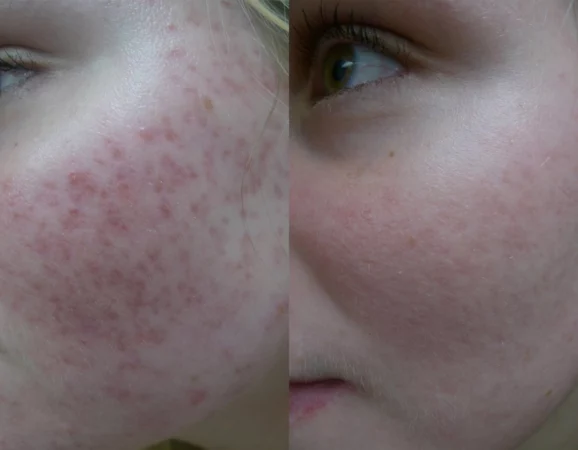
Topicals to treat acne, vascular laser therapy to reduce redness
Ask us more about this treatmant
Preferred Consultation
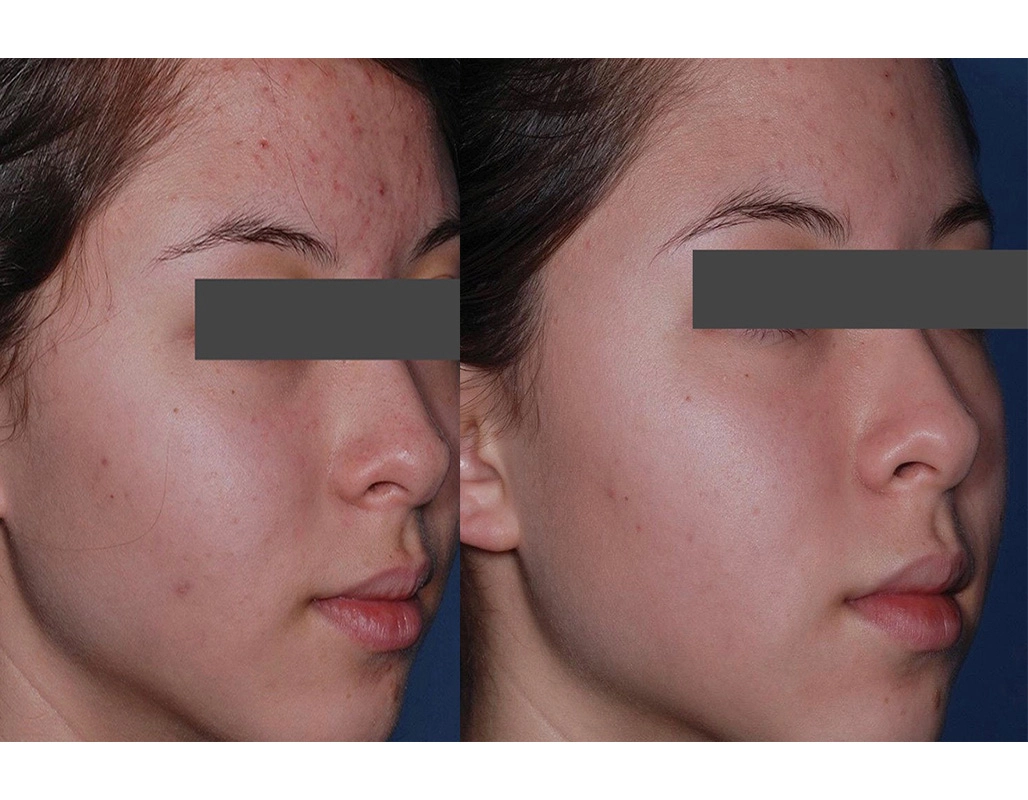
Before
After
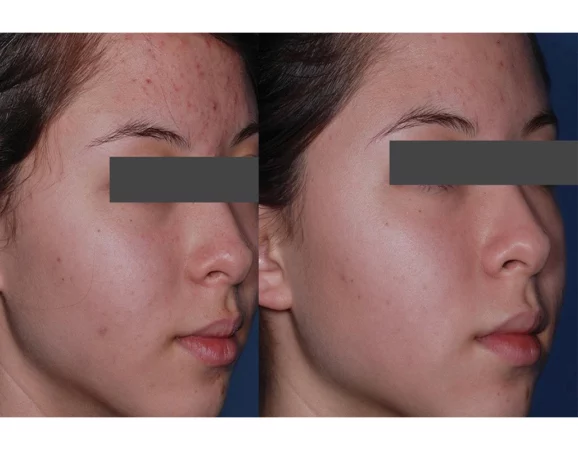
Obagi has medical grade therapy for acne. Benzoyl peroxide combined with active wash, cleanser & moisturizer
Ask us more about this treatmant
Preferred Consultation
FAQs
What is a simple skin care routine (DIY)?
Keep skin care simple & make every ingredient count. Over the counter skin care can help most acne patients. A really basic routine goes something like this;
AM: Salicylic acid 2% cleanser. SPF.
PM: Salicylic acid 2% cleanser (or a bland cleanser if you have sensitive skin). Retinol 1%. Benzoyl Peroxide to spots as needed. Acne patches to new pimples.
Are prescription retinoids better than retinol?
Yes, that is why they are prescribed. Retinol needs to be converted into retinoic acid to become active. Conversion can range from 1 to 3 steps. Retinyl palmitate is the gentlest form, followed by retinol and retinaldehyde.
Prescription retinoids include tretinoin, adapalene, followed by tazarotene and trifarotene. The gentlest is adapalene, the most powerful is trifarotene.
Remember, not everyone needs to be on super powerful prescription retinoids. In most cases, an exfoliating wash, retinol, & a good diet can help clear up most outbreaks.
What is the best wash for acne prone skin?
You have 3 choices of washes. The best one will depend on your skin sensitivity and other factors such as acne subtype.
- BPO or benzoyl peroxide is the cheapest (& nasty). It is essentially bleach for your skin. It is best for pimples, zits and pustules. Save some money, buy Benzac AC over Proactiv.
- Salicylic acid is one of our favourites. Find a formulation with 2% salicylic acid. Use daily, then increase as tolerated. Be careful if you are using retinoids or retinol as BHAs or beta hydroxy acids can potentially increase the absorption of topicals, not necessarily a bad thing. Salicylic acid is best for blackheads, congestion, and oily skin.
- Bland cleansers include Cerave, Cetaphil, QV wash, Neutrogena Gentle & Avene. This family of cleansers are best if you are taking Oratane or if you are on a powerful prescription retinoid. Remember, if you have sensitive skin, keep it simple.
What are other skin care products that can help reduce acne & blackheads?
There is an endless list of what can work, here is a summary.
- Tea tree oil; can be effective, works by reducing inflammation and killing bacteria.
- Witch hazel, less evidence than tea tree oil.
- Apple cider vinegar don’t do it. Burns are common.
- Zinc topically, or better still zinc sulphate
- HPR granactive retinol or hydroxy pinacolone retinoate, has some merit but not much.
How much should you pay for acne products?
Now the problem with most clinics is that they want to sell you a whole heap of stuff. It’s best to keep things simple. Here is a guide on what you should pay.
Cleansers: range from $15 to $25. Simple is best. Salicylic acid cleansers are usually around $20 a month if that.
Moisturizers: about the same price as cleansers.
Retinol: range from $40 to $90 for good ones.
Sunscreen: about $20-$25 dollars.
How do I know which product are best for my skin?
The most accurate way to assess your skin is to let a professional help you. Our clinical nurses can guide you as to both the correct products & procedures.
Book a FREE consult. Redeemable with any skin treatments.
How long does it take to see results?
Here’s the deal- it takes time to see results if you are using topicals, as opposed to chemical peels and extractions (results are seen in 48 to 72 hours). As a guide, prescription retinoids take 3-4 months to reduce acne counts by 30-40%. Retinol may take longer.
If you have blackheads, a 20-30% salicylic acid peel or a strong retinoic acid peel can reduce congestion within a few days, thereby kick-starting your acne treatments.
What creams are good for acne scars?
The topical cream with the most amount of data is adapalene or Differin. This retinoid is prescription only in Australia, but over the counter in the United States. Other topicals that can help with early acne scars include, tretinoin, tazarotene and trifarotene.
Creams are best used in conjunction with microneedling, peels or lasers. Our dermatologists also use super strength retinoic acid, 1-7%, often in combination with fractional lasers.
Red acne scars can be treated with topical anti-inflammatory agents including niacinamide or corticosteroids. Brown acne scars are treated with hydroquinone, arbutin, salicylic acid, citric acid, lactic and Kojic acid.
Products

O Cosmedics SPF range
$54.00-$64.00
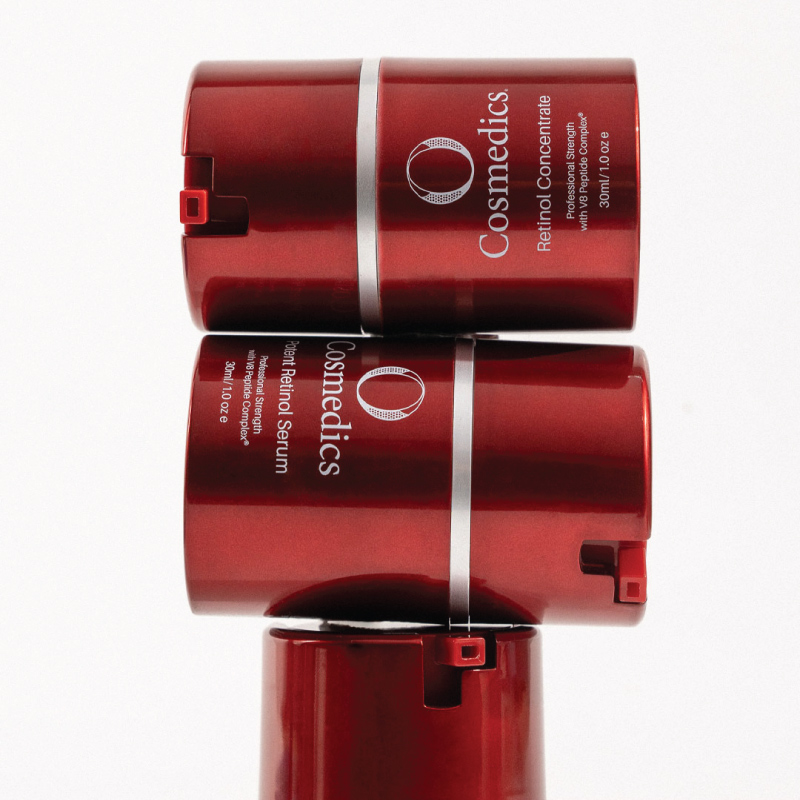
O Cosmedics retinol range
$102.00-$139.00
A simple, but highly effective skincare routine involves chemical exfoliation with BHAs daily, coupled with retinoids at night. Don’t forget an anti-acne diet. This combination sorts out 85% of acne.
How to treat post-inflammatory hyperpigmentation from acne?
PIH or post inflammatory hyperpigmentation is more common in skin of colour. It often lasts over a year. The most important aspect of managing PIH is prevention of future outbreaks. From there dermatologist prescribe-
- Topicals including retinoids and pigment correctors such as arbutin & hydroquinone
- Lasers such as pico or fractional resurfacing
- Chemical peels including glycolic and retinoic acids
Pico lasers give the most predictable results, fading brown marks within 2 to 3 sessions.
How to treat red spots or post inflammatory erythema?
Topical creams that can reduce red spots include corticosteroids, retinol, retinoids, as well as ascorbic acid & niacinamide. These are best combined with vascular lasers such as V Beam Prima or Perfecta. Pico lasers can also be used to treat red spots.
The biggest gain you will get is with the use of SPF 50+ sunscreen. This reduces the risk of long-standing colour change, including post inflammatory hyperpigmentation & erythema.
How can chemical peels help?
Think of clinical peels as supercharged skin care. For example, an over-the-counter exfoliating wash of salicylic acid is 2%, we use 30%. Retinol is around 1%, whilst we use the pure form of retinoic acid at over 100 times the potency of over-the-counter skin care.
Our team of dermatologists and nurses employ peels to give you faster results, with little to no downtime. Peels are cost effective and start from $98.
Why is sunscreen important if you have acne?
Don’t forget sunscreen, especially if you have darker skin. UV can promote increased melanin or pigment within the areas of acne. This is called post-inflammatory hyperpigmentation. Sunscreen markedly mitigates pigmentation changes.
A sensible frequency is twice a day, ½ to 1 teaspoon per application.
What is the best sunscreen for acne prone skin?
An oil free one. Our pick is La Roche Posay Anthelios 50+. Go with the tinted one if you have ethnic/dark skin as tints protect against HEV or blue light (which can make post acne marks worse).
Other sunscreens that are highly rated include Invisible Zinc & Melan 130 (nice but very expensive).
Why should you moisturise if you have oily skin?
Seems odd to add more moisture to already oily skin but hear us out. Acne damages your skin barrier function. This leads to more oil production, inflammation, altered wound healing & pigmentation.
Using a simple moisturizer can re-establish barrier function and reduce scars. Don’t overdo it, twice a day is more than enough.
Recommended moisturizers include La Roche Posay Cicaplast, Cetaphil Oil Free, Cerave & Obagi.
When should you see a dermatologist?
Here is the deal. Most people with acne do not need to see a dermatologist. Simple, precise & regular skin care, coupled with good makeup practices and diet will sort out 80-85% of acne out there. Consider visiting a dermatologist if-
- Your acne is not improving despite being on a good diet & skin care routine.
- If there is a family history of acne, especially cystic acne.
- Persistent hormonal jawline acne.
- Acne that scars.
What is the best makeup for acne prone skin?
Most dermatologists prefer mineral make-up, preferably talc and paraben free (in reality parabens are super safe preservatives, it’s just that green – clean beauty makes such a big deal). In real practice most makeup brands are now non-comedogenic, but you should still aim to-
- Remove all makeup before bedtime
- Remember to incorporate makeup free days (even for one day a week)
